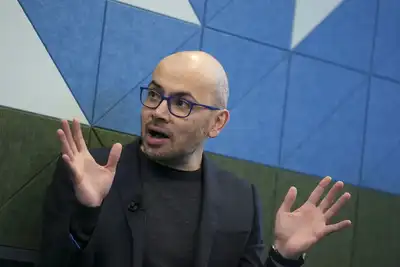

Tech issues
Google DeepMind CEO Demis Hassabis Urges Students to Embrace STEM and AI for Future Job Success
— GMTNewsng Reports, Monitored from Times of India
LONDON, UK – Demis Hassabis, Nobel laureate and cofounder of Google DeepMind, has issued a powerful call to action for students worldwide: prioritize STEM education and immerse yourself in artificial intelligence. Speaking at the South by Southwest (SXSW) London conference, Hassabis emphasized the enduring value of foundational knowledge in mathematics, physics, and computer science – even in the face of AI’s growing dominance across industries.
“If I were a student right now,” Hassabis declared, “I would still be studying STEM subjects. It’s still important to understand fundamentals – how these systems are put together.”
Hassabis, a central figure in AI innovation and one of the key architects behind some of the world’s most advanced machine learning models, drew parallels between the current AI revolution and the Industrial Revolution, predicting massive changes to the employment landscape over the next decade.
According to Hassabis, artificial intelligence will create “new very valuable jobs” in the coming five to ten years, especially for “technically savvy people who are at the forefront of using these technologies.”
Hands-On AI Experience Is Now a Necessity, Not a Bonus
Beyond academic theory, Hassabis emphasized the importance of practical engagement with AI tools.
“I’d also be experimenting with all the latest AI systems and tools and seeing what’s the best way of utilizing them and making use of them in useful and novel ways,” he advised students.
He envisions a future where today’s children become “AI native,” just as earlier generations grew up with the internet. This natural fluency in AI, he argued, will be essential for succeeding in workplaces increasingly powered by machine intelligence.
This shift is already underway, with companies like Meta, Microsoft, and Google incorporating AI tools to assist in tasks such as software development, data analysis, and content creation.
The Race Toward Artificial General Intelligence
At Google’s recent I/O developer conference, Hassabis joined Google cofounder Sergey Brin in predicting that artificial general intelligence (AGI) – AI systems capable of matching or exceeding human intellectual capabilities-could be realized as early as 2030. The ambitious timeline places added urgency on equipping students with the technical skills and adaptive mindset necessary to thrive in an AI-driven economy.
Even as fears rise over automation and job displacement, Hassabis remains optimistic about humanity’s ability to adapt and harness technology for empowerment.
“The technology will ultimately supercharge workers who understand how to leverage these powerful new tools effectively,” he said.
A Global Wake-Up Call for Education Systems
Hassabis’ message comes at a time when education systems around the world are reevaluating curricula to integrate digital literacy, coding, and machine learning. His comments serve as a timely reminder for students, educators, and policymakers alike: mastering the basics of science and technology, combined with hands-on AI experience, is now essential-not optional.
The news was monitored by GMTNewsng from Times of India.

-

 News4 years ago
News4 years agoEnugu Community: Bloodbath imminent as traditional ruler plans forceful take over of ancestral land
-

 Features4 years ago
Features4 years ago65 Hearty Cheers To Prof. Bart Nnaji, Aka Ji Oku, Nigeria’s Former Minister Of Power
-

 News4 years ago
News4 years ago2023: Support one of our sons to be governor of Enugu State -Nkanu East leaders plead with other areas
-

 Politics4 years ago
Politics4 years ago2023: Enugu State Governorship slot should go to Nkanu East ~Jim Nwobodo
-

 Opinion4 years ago
Opinion4 years agoBIAFRA, KANU AND NIGERIA
-

 News4 years ago
News4 years agoUgwuanyi an epitome of peace in Enugu State ~Owo Community
-

 News4 years ago
News4 years agoHow Interpol intercepted IPoB leader in Europe
-

 Politics4 years ago
Politics4 years agoEnugu: Nkanu East Leaders’ Forum Kicks Off Consultations For 2023 Governorship Slot







